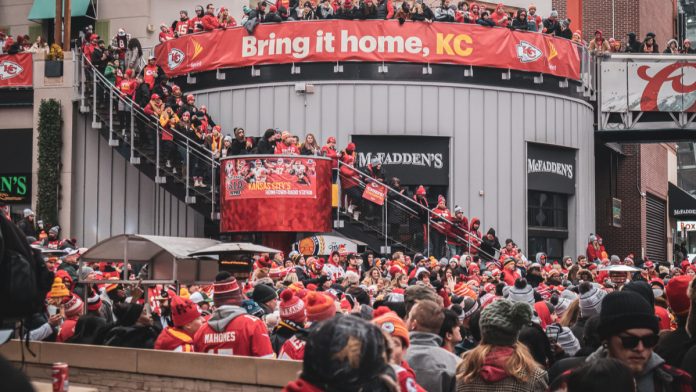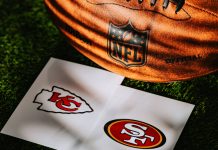A motion to move the Kansas City Chiefs from Missouri to the state of Kansas almost scuppered a sports betting bill over the weekend, according to CJonline.
The Kansas House of Representatives passed the sports betting bill on Saturday 63-50, however, concerns of the ‘Attracting Professional Sports to Kansas Fund’ almost brought the bill to its knees.
A lack of consideration for the fund in the language of the bill over recent months and years has caused some to view it as a tool to lure the Missouri-based franchise to Kansas and even as corruption.
“There’s a pattern of secret deals going on in the (Kelly) administration and in Republican leadership,” Rep. Henry Helgerson said, courtesy of CJonline. “And they don’t want to tell the rest of the Legislature and that is harmful to the system and to the state.”
It comes amid rumors that the Kansas City Chiefs would be open to moving to Kansas, sparking fury over the ‘border war’ ongoing between the state and Missouri.
Governor Laura Kelly admitted that when a deal was made with Missouri to end the so-called border war on economic development, it did not include the NFL franchise.
House Minority Leader, Tom Sawyer, added: “I think people are excited to bring the Chiefs to Kansas and in economic development, there’s a lot there.
“It would be nice if people at least knew about it ahead of time … when you stick things in conference, it not only violates the rules, it causes lots of problems.”
The sports betting bill proposes that casinos would be able to partner with online sportsbooks and up to 50 retailers to offer wagering on sports, with the stipulation that a certain amount of the retailers must be non-profit organizations.
Furthermore, it details that the state must take 10% of all wager revenues, regardless of whether it was made online or from a retail channel, and that 2% must go towards tackling problem gambling that may arise as a result.














